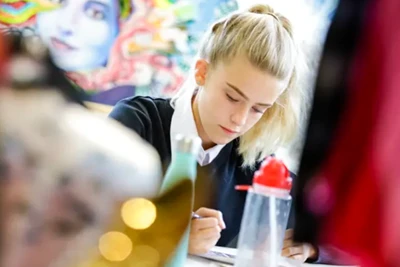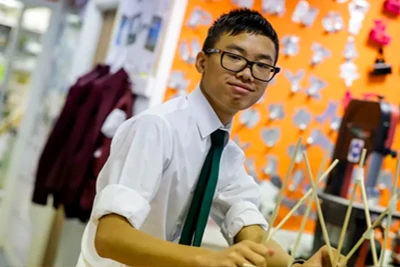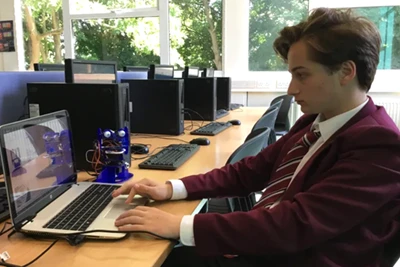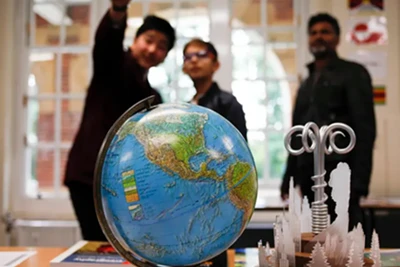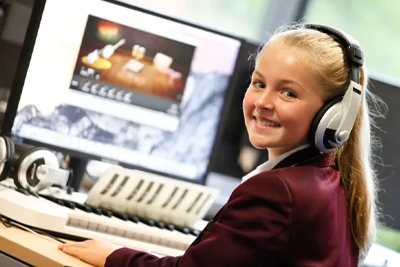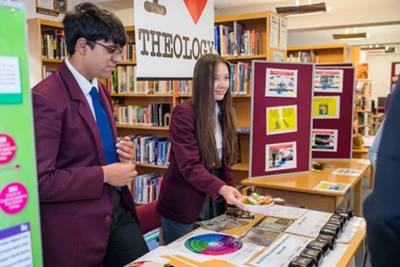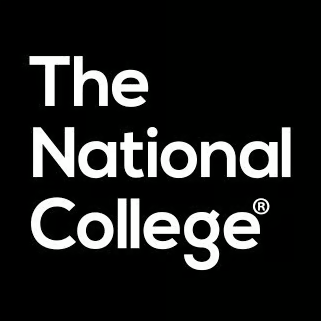When young learners join our Senior School, they become part of a warm and thriving community filled with ways to make friends, learn, work together, and have fun.
From sports and chemistry to chess and technology, students will also find a wide range of clubs where they can meet classmates who share their interests. Common rooms and assemblies are another way we create a strong sense of community, connecting learners through various themes, projects, and guest talks. In addition, we encourage pupils to show their own initiative through our student council, school newspaper, and more.
• School Teaching hours – I-V: 08.00 – 16:00
Royal Russell Senior School offers a broad curriculum in Key Stage 3 to set pupils up for success in their future studies, and a selection of over 25 Cambridge IGCSEs courses at Key Stage 4 are delivered by specialist teachers in our small class sizes.
The curriculum at Royal Russell School provides opportunities for all pupils to excel in their learning.
Throughout Years 7 – 9, pupils follow the Key Stage 3 curriculum and experience a wide range of subjects and lessons. Our small class sizes enable our teachers to capture the interest of every pupil and extend their subject understanding with discussion, research and projects.
We run courses and assemblies for all our pupils on maximising their potential and effective study and revision skills.
Pupils in Year 9 are asked to state their preferences about which courses they wish to study in Years 10 and 11 for IGCSE examinations. This is an important phase in every pupil’s education as they begin the process of specialising in certain subject areas.
English Language and Literature, Mathematics, all three Sciences and a Modern Foreign Language form the seven core subjects studied at IGCSE.
Pupils will add three more subjects of their own choice from a broad range. The main thing to consider is that pupils should elect to study subjects that they enjoy and believe they will be successful at. We do not expect pupils at this stage to have a definite idea of the direction they wish to progress in their studies in our Sixth Form, and as such, our curriculum is broad and balanced.
When considering subjects, pupils should consider what they will be studying in those lessons, and also how this fits in with co-curricular activities. We want to ensure that pupils continue to develop their skills outside the classroom, whilst being mindful of not taking on too much.
English Language
Mathematics
Science
Lithuanian
PE / Games
Computer Science
History
Art and Design
Drama
Music
Food Preparation and Nutrition
PSHE
English Language
Mathematics
Biology
Chemistry
Physics
French, Spanish
PSHE (non-examinated)
Careers (non-examinated)
PE/Games (non-examinated)
Business Studies
Computer Science
Design and Technology
Drama
English as an Additional
Language
Geography
History
Media Studies
Music
Physical Education
